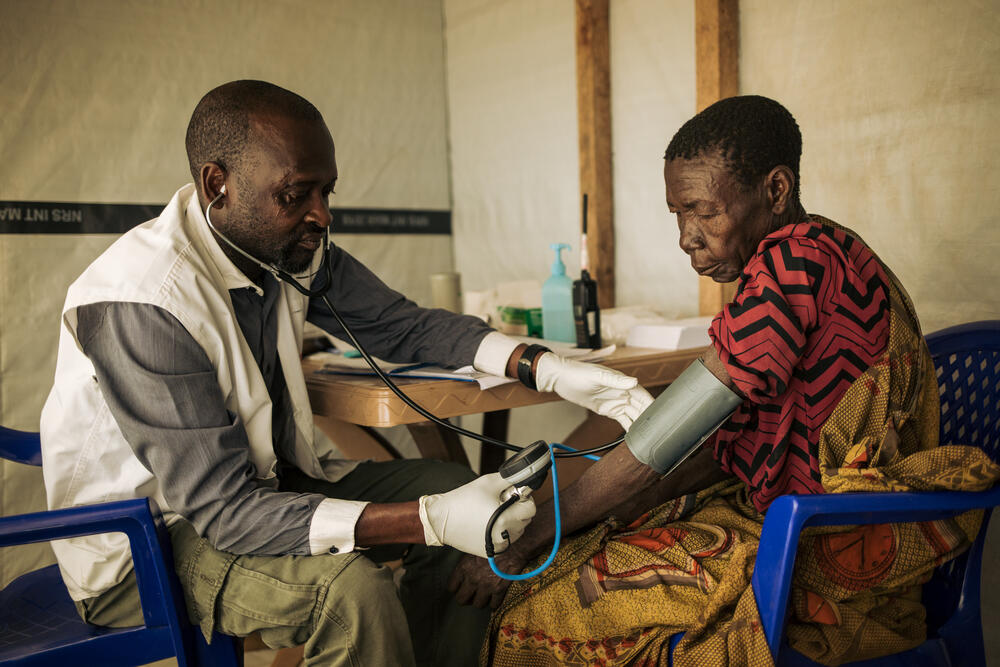In many African nations, Tanzania, mirroring the trend, is grappling with a surge in non-communicable diseases (NCDs). These diseases, including cardiovascular ailments, diabetes, cancers, and respiratory conditions, are on an upward trajectory in Tanzania and across the continent.
The World Health Organization (WHO) data reveals that NCDs are responsible for an estimated 34% of deaths in Tanzania, underscoring the gravity of the situation.
The Underlying Risk Factors
The root causes of Non-Communicable Diseases often lie in lifestyle choices. Unhealthy dietary habits, sedentary lifestyles, tobacco consumption, and excessive alcohol intake are some of the primary culprits. A closer look at the data reveals concerning statistics:
- Tobacco consumption stands at 15.9%.
- Alcohol consumption is at 29.3%.
- A staggering 97.2% consume fewer than the recommended five servings of fruits and vegetables daily.
- The overweight and obesity rate is 29%.
- Elevated cholesterol levels affect 26% of the population, while raised triglycerides are seen in 33.8%.
Physical inactivity is a significant concern, leading to metabolic changes that elevate the risk of Non-Communicable Diseases, including high blood pressure, obesity, elevated blood glucose, and increased fat levels in the bloodstream.
Challenges in NCD Management
Despite the clear need for preventive measures, several barriers hinder effective implementation. Socioeconomic factors like poverty, limited educational opportunities, cultural norms, and insufficient health promotion initiatives exacerbate the risk factors.
Additionally, inadequate screening programs and a shortage of healthcare professionals often compromise early detection.
An article from “The Citizen,” dated 4 September 2022, highlighted the economic strain Non-Communicable Diseases place on Tanzania. Health Minister Hon. Ummy Mwalimu disclosed that the country’s expenditure on NCD treatments had surged to TSh 99 billion in 2021/22 from TSh 35.65 billion in 2016/17. These funds were primarily directed towards treatments for cancer, cardiovascular diseases, diabetes, and hemodialysis.
The HIV-NCD Connection
There’s an emerging need to integrate strategies for HIV/AIDS with NCD initiatives. A Tanzanian study delved into the prevalence of NCDs among HIV-positive individuals, revealing a complex relationship.
While Antiretroviral Therapy (ART) has undoubtedly enhanced life expectancy for those with HIV, it also amplifies the risk of NCDs. This interplay necessitates a holistic approach to healthcare planning and resource allocation.
These are the Strategies for NCD Management:
Public Health Initiatives: A robust public health strategy is essential. This encompasses widespread interventions, lifestyle promotion, and fortifying the healthcare infrastructure to facilitate preventive services.
Public health initiatives play a crucial role in creating awareness, education, and promoting behavior change, ultimately reducing the burden of Non-Communicable Diseases.
Personal Accountability: Another perspective emphasizes the role of individual choices. Advocates stress the importance of personal health prioritization, balanced diets, regular physical activity, and proactive preventive measures. They argue that personal decisions, such as maintaining a balanced diet, regular exercise, and avoiding risk factors, significantly reduce NCDs’ burden.
Health Insurance: Tanzania’s Weapon Against NCDs
Health insurance can be a game-changer in the fight against Non-Communicable Diseases in Tanzania. Insurance can significantly alleviate the NCD burden by promoting preventive measures and offering affordable treatment options.
Health insurance providers can incentivize policyholders to adopt preventive measures by offering health screenings, vaccinations, and wellness programs coverage. This encourages individuals to undergo regular check-ups, leading to early detection and timely intervention.
Generally, the rising burden of Non-Communicable Diseases in Tanzania requires comprehensive strategies that address prevention, early detection, and management. Public health approaches focusing on awareness campaigns, education, and population-wide interventions are crucial. Simultaneously, promoting individual responsibility and empowering individuals to make healthier lifestyle choices is essential.
Health insurance can complement these efforts by incentivizing preventive measures and providing affordable access to treatment. Collaborative efforts between the government, healthcare providers, insurers, and communities are necessary to mitigate the impact of Non-Communicable Diseases and create a healthier future for Tanzania and Africa.
By addressing the challenges and harnessing the potential of health insurance, Tanzania can take significant strides towards reducing the burden of Non-Communicable Diseases, improving health outcomes, and ensuring a brighter future for its citizens.

